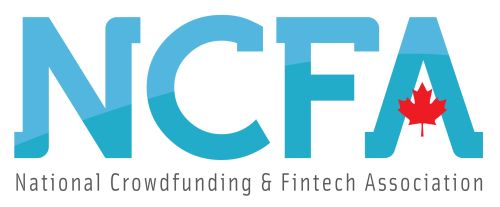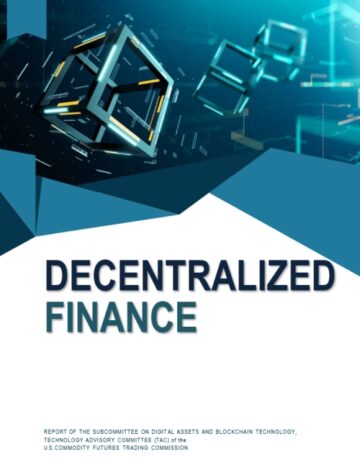Open Banking in Canada | Nov 10, 2023

 Image: Unsplash/Jason Dent
Image: Unsplash/Jason DentConservative MP Ryan Williams has tabled Bill C-365, titled “The Consumer-Led Banking Act.” a pivotal step in Canada’s journey towards Open Banking, a system that could lower banking fees and mortgage rates for Canadians
Canadians currently face some of the highest banking fees globally, with average monthly fees around $15, transactional fees of $1.40, and $25 for overdrafts. This situation is largely attributed to the lack of competition in the banking sector, with six major banks controlling a significant portion of the market.
Open Banking, as seen in the UK and other countries, allows bank customers to more financial products and services choice in the market leading to lower banking fees. This system fosters a more competitive environment where banks and financial tech companies vie for customers, leading to better services and lower costs. In the UK, the implementation of consumer-led banking has reportedly saved families an average of $400 per year, with a notable decrease in mortgage rates.
Bill C-365
Bill C-365 seeks to compel the Canadian government to present a second report on Open Banking, which has been pending since May 2023. The bill aims to bring this report to Parliament within 30 days and introduce consumer-led banking legislation within six months. This move is seen as a direct challenge to the current Liberal government’s inaction over the past four years.
See:
CFPB Unveils Open Banking and Consumer Data Rights Proposal
Vass Bednar: Canada’s Glaring Banking Protections Gap and Implications for Consumers and Fintechs
The Conservative party, through this bill, is pushing for Canadians to regain control over their financial data, currently dominated by banks. They argue that this legislation will break the oligopoly in the banking sector, offering Canadians financial freedom and savings throughout the year.
Conclusion
Bill C-365 is a beacon of light for many Canadians burdened by high banking fees and open banking advocates. It promises not just financial relief but also a shift towards a more competitive and consumer-friendly banking sector. As Canada potentially joins other G7 countries in adopting Open Banking, this could mark a new era of financial empowerment for its citizens.

 The National Crowdfunding & Fintech Association (NCFA Canada) is a financial innovation ecosystem that provides education, market intelligence, industry stewardship, networking and funding opportunities and services to thousands of community members and works closely with industry, government, partners and affiliates to create a vibrant and innovative fintech and funding industry in Canada. Decentralized and distributed, NCFA is engaged with global stakeholders and helps incubate projects and investment in fintech, alternative finance, crowdfunding, peer-to-peer finance, payments, digital assets and tokens, artificial intelligence, blockchain, cryptocurrency, regtech, and insurtech sectors. Join Canada’s Fintech & Funding Community today FREE! Or become a contributing member and get perks. For more information, please visit: www.ncfacanada.org
The National Crowdfunding & Fintech Association (NCFA Canada) is a financial innovation ecosystem that provides education, market intelligence, industry stewardship, networking and funding opportunities and services to thousands of community members and works closely with industry, government, partners and affiliates to create a vibrant and innovative fintech and funding industry in Canada. Decentralized and distributed, NCFA is engaged with global stakeholders and helps incubate projects and investment in fintech, alternative finance, crowdfunding, peer-to-peer finance, payments, digital assets and tokens, artificial intelligence, blockchain, cryptocurrency, regtech, and insurtech sectors. Join Canada’s Fintech & Funding Community today FREE! Or become a contributing member and get perks. For more information, please visit: www.ncfacanada.org
Related Posts
- SEO Powered Content & PR Distribution. Get Amplified Today.
- PlatoData.Network Vertical Generative Ai. Empower Yourself. Access Here.
- PlatoAiStream. Web3 Intelligence. Knowledge Amplified. Access Here.
- PlatoESG. Carbon, CleanTech, Energy, Environment, Solar, Waste Management. Access Here.
- PlatoHealth. Biotech and Clinical Trials Intelligence. Access Here.
- Source: https://ncfacanada.org/bill-c-365-paving-the-way-for-open-banking-in-canada/
- :has
- :is
- :not
- :where
- 10
- 150
- 2018
- 2023
- 250
- 30
- 32
- 40
- a
- Act
- Adopting
- advocates
- affiliates
- aims
- allows
- also
- alternative
- alternative finance
- an
- and
- argue
- around
- artificial
- artificial intelligence
- AS
- Assets
- average
- Bank
- Banking
- banking sector
- Banks
- beacon
- become
- been
- Better
- Bill
- blockchain
- Break
- bring
- but
- by
- cache
- Canada
- Canadian
- Canadians
- CFPB
- challenge
- choice
- Citizens
- closely
- community
- Companies
- competition
- competitive
- conservative
- consumer
- consumer data
- Consumers
- control
- controlling
- Costs
- could
- countries
- create
- Crowdfunding
- cryptocurrency
- Current
- Currently
- Customers
- data
- decentralized
- Declining
- decrease
- digital
- Digital Assets
- distributed
- ecosystem
- Education
- empowerment
- engaged
- Era
- Ether (ETH)
- Face
- families
- Fees
- finance
- financial
- financial data
- financial empowerment
- financial freedom
- financial innovation
- financial products
- fintech
- fintechs
- For
- For Consumers
- four
- Freedom
- from
- funding
- funding opportunities
- G7
- gap
- get
- Global
- Globally
- Government
- helps
- High
- highest
- http
- HTTPS
- image
- implementation
- implications
- in
- inaction
- industry
- information
- Innovation
- innovative
- insight
- Insurtech
- Intelligence
- introduce
- investment
- IT
- ITS
- Jan
- Joins
- journey
- jpg
- just
- largely
- leading
- Legislation
- light
- lower
- major
- many
- mark
- Market
- max-width
- May..
- member
- Members
- monthly
- MONTHLY FEES
- months
- more
- Mortgage
- move
- networking
- New
- next
- notable
- nov
- of
- offering
- on
- open
- open banking
- opportunities
- or
- Other
- over
- parliament
- partners
- party
- past
- Paving
- payments
- peer to peer
- pending
- per
- perks
- phase
- pivotal
- plato
- Plato Data Intelligence
- PlatoData
- please
- potentially
- present
- Products
- Products and Services
- projects
- promises
- proposal
- provides
- Publishes
- Pushing
- Rates
- recommendations
- regain
- Regtech
- relief
- report
- reportedly
- rights
- Ryan
- Ryan Williams
- s
- saved
- Savings
- Second
- sector
- Sectors
- Seeks
- seen
- Services
- shift
- significant
- since
- situation
- SIX
- Six months
- some
- stakeholders
- Step
- Stewardship
- system
- tech
- tech companies
- that
- The
- the UK
- their
- they
- this
- thousands
- Through
- throughout
- titled
- to
- today
- Tokens
- towards
- transactional
- Uk
- UK government
- Unsplash
- Unveils
- Vault
- vibrant
- vie
- Visit
- Way..
- which
- will
- Williams
- with
- within
- works
- year
- zephyrnet












